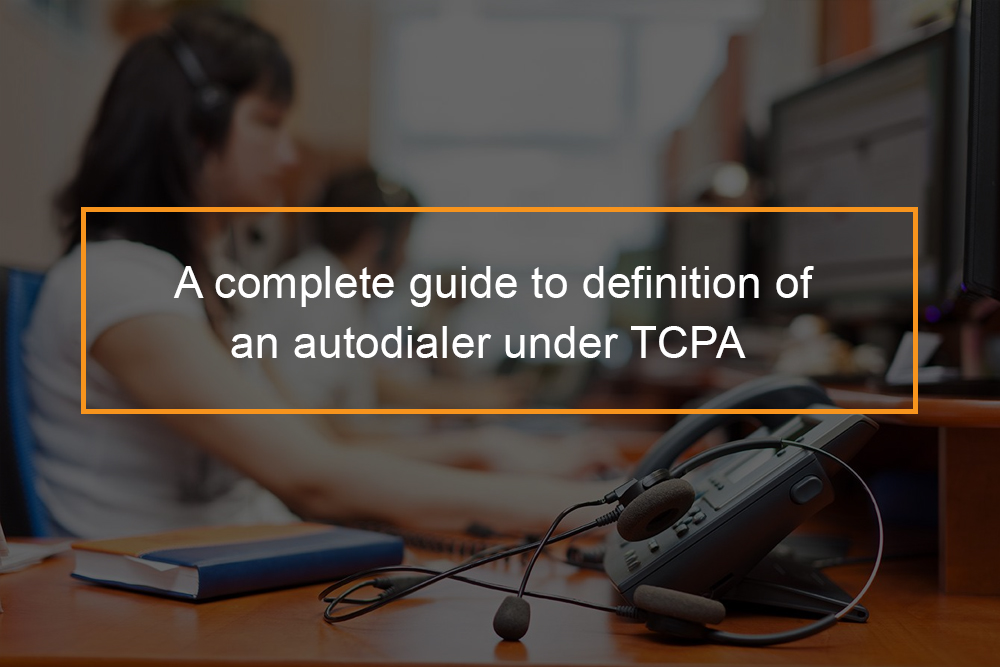Call center management: Best Practices

Keys to Success: What Makes a Call Center Thrive
There’s a reason that people are afraid to call telephone centers: They’ve earned themselves an image of slow waiting times, confusing phone menus, repetitive explanations and poor outcomes. It’s not much better for call center agents. The turnover rate for the call center ranges between 30 and 45 percent; agents usually complain about angered customers, inadequate management, excessive call volume as well as a lack of career advancement and inefficient methods as reasons to leave. Despite all these issues they are an essential part of any B2C business’s customer service and support plan. What makes a successful call center? How does a Call Center work?
Table of Contents
What makes a successful call center?

What makes a successful call center? Effective communication is essential to a successful call center. Therefore, managers should regularly check in with employees to ensure they’re satisfied. Feedback that is constructive is important however, so is taking note of the feedback of employees.
How does a Call Center work?
In the call center help agents assist customers with issues or respond to customer queries. The call center manager provides agents the tools and resources they require to solve problems as quickly as they can. Learn how to run an effective call center by learning the way a typical call center interaction takes place.
| Customer contacts the call center | Ideally, a support agent will answer right away. As call volumes increase, interactive voice response (IVR) systems help filter and transfer calls to the right agent or schedule a callback later. |
| A support agent tries to fix the customer’s problem | Agents should possess product knowledge and customer service skills that help them fulfill callers’ needs. The agent’s goal is to find a solution during the first interaction. Still, in some cases, the agent must follow up after more research. |
| The agent updates the customer’s record | Once the agent resolves an issue, they close the ticket and add notes from the exchange to the customer relationship management CRM) system. That way, if the customer calls again, other agents have all the context they need to provide a seamless experience. |
What are the jobs and responsibilities of a call center agent?
Agents are an essential part of the customer experience, and are the core of a successful call center. The responsibilities of agents vary based on the nature of the company, but a few typical tasks are required in an employment in a call center. The typical agent would be required to:
- Answer messages and inbound calls
- Handle complaints and inquiries
- The supervisor can escalate complicated issues
- give customers product information and technical assistance
- Create call logs and report make reports
- Calls to follow up if required.
In certain call centers, you could also be requested to:
- process orders and accept payment by credit card
- upsell services and products
- Make outbound sales calls and market analysis calls
- Update customer information
- Create recorded messages for self-service.
Agents receive training on the particular system utilized by their company and are often required to participate in the ongoing development process as technology develops. It is possible to learn to become a successful representative for a call center, but certain people are better at the role than others. We’ll discuss the subject further in the future.
Why is a successful call center important?

We’ve all heard of people complaining about customer service in call centers. We’ve likely complained about it at times. Some of the most common complaints include being put on hold for hours and being shuffled throughout the system, or having issues communicating with representatives.
If potential customers complain about the agents at your center They’re complaining about your business. The agents at your call center represent the representative (or at the very least, their sound) of your company’s brand, and it’s essential to give an impression that is positive. In the end, a successful call center will:
- improve customer experiences
- increase productivity
- increase employee retention
- Reduce costs and boost revenues and reduce costs
Nowadays, customers demand quick responses and prompt resolutions. If you fail to respond promptly or give a satisfactory resolution to their issue customers could and will choose to go to another company. In addition, they are active on social media sites, where they’ll be happy to write bad reviews and even call you out, which can severely damage your reputation.
No matter if it’s a phone call or live chat, it is important to convey the best impression with every interaction with your customers. You have the chance to showcase your business in the most attractive light. It is essential to exceed expectations by understanding the needs of your customers and tailoring the service to make them feel loved, appreciated and appreciated.
The goal is to keep customers who are already loyal and to welcome new ones, thereby making them pick you over competitors. To grow your business the customers should be delighted with your products and services, becoming brand ambassadors, and sharing their positive experience with others.
A successful call center can also cut costs by assisting with more messages and calls, and resolving complex problems efficiently. Automation can speed up the process of simple tasks and also provide self-service solutions and free up your staff to concentrate on more difficult questions. In addition, a platform for unified communications such as RingCentral assists call centers in running efficiently by putting operations on the cloud, and connecting all channels and tools together in one.
Call Center Best Practices to Implement Today

- Establish and monitor key performance indicators (KPIs). One of the most effective methods to evaluate the effectiveness of the call center you have set up is using hard, cold data in this instance measurements of your call center. KPIs like First Call Resolution (FCR) and Customer Satisfaction Score (CSAT) offer a glimpse into the satisfaction of customers and agent performance. They also make it easier to find weak areas in your center. Be aware that there aren’t all metrics similar; it is important to concentrate on those which are compatible with your company’s goals. For suggestions on what KPIs to track, scroll into the following section in this post.
- Rigorously test for quality assurance. There are a variety of ways to achieve this, however calling monitoring and scoring may be the most widely used method. For those who aren’t familiar with the term, call monitoring is the method whereby businesses listen to recorded or live recorded calls to evaluate the agent’s performance. The calls are then rated based upon criteria such as whether the agent followed the script for the call center or company policy and etiquette or displayed problem-solving abilities. When the call is evaluated, the manager of the call center or QA expert will perform a postmortem performance evaluation for the agent who was involved. The goal of this assessment is not just to fix the agent’s errors however, it is also to discover the patterns in behavior and to develop a training plan to ensure constant improvement.
- Provide customers with multiple self-service options. According to a survey conducted by BankMyCell 75% of millennials do not make calling because they view the process as a time-consuming one; 81% of them report feeling fearful anxiety prior to deciding to call. According to all indications, Gen Z seems to have the same sentiment. The good news is that modern technology has enabled companies to provide their customers by offering alternatives to traditional customer service, such as chatbots, self-service portals, as well as interactive systems for voice responses. It’s not just the clients who gain from self-service: These alternatives have been shown to reduce the volume of calls, which relieves some of the burden on agents in call centers.
- Develop a centralized knowledge base. In terms of self-service options A knowledge base is among the most effective ways to offer the information that your customers require at the exact time they require it. When you are creating your own knowledge database, ensure that it’s easy to locate and navigate, and that it answers frequently asked questions, and clearly indicates the next steps to take if customers can’t find the information they’re seeking. Make sure you update your knowledge base regularly to ensure that the information you provide is up-to-date and current.
- Publish helpful and informative content in the form of FAQs and tutorials. Contact one of your representatives and they’ll probably be able to tell you there are many fundamental questions from customers that they can answer regularly. One way to cut down on the number of calls and reduce wait times is to incorporate an FAQ section in your knowledge base that customers are able to easily reference. While you’re at it you could also think about making a series of tutorials that give customers steps-by-step instructions on how to solve simple issues.
- Reduce the average amount of time customers spend in queue. Unfortunately, there isn’t a solution to this problem -it’s all about trial and trial and. However, the introduction of self-service services, closely observing KPIs, and constantly monitoring and improving the performance of agents will go a long way in achieving this objective.
- Invest in a system for organizing customer inquiries. A ticketing system will automatically capture information about the customer as well as what the basis of their query and allow agents to sort open cases according to the date when they were made available as well as the severity of the issue. It will also allow customers to track the status of their cases in real-time.
- Develop a foolproof contingency plan. It’s generally advisable to be optimistic but prepare for the worst. This applies to call centers as for any other type of business. The world is not predictable, and disasters can strike at a time, so it’s vital to have a contingency strategy -or several strategies for various scenarios put in place to ensure that your call center is up and running in the event of a crisis. When you are preparing the emergency plan for your call center:
- Determine any systems that might be in danger, particularly those that are considered to be business-critical
- Find the sources of backup power
- Find key individuals
- Prioritize the responsibilities that will help ensure the continuity of business
- It is important to clearly communicate expectations to all agents at call centers.
- Form a team of people to oversee the plan’s execution
- Test your contingency plan thoroughly
- Establish and enforce call center standard operating procedures (SOPs). SOPs must be developed in a manner that they give agents clear instructions on how to accomplish specific tasks as well as on how to conduct themselves or react to any situation. In this regard, SOPs should be clearly written and readily accessible to agents. Most of the time, companies will keep SOPs in an in-house knowledge base. By establishing and enforcing SOPs will keep your agents from getting surprised and enhance the overall efficiency of your call center.
- Hire call center agents based on attitude over aptitude. The work of a call center takes patience, empathy, great communication skills, and a lot of enthusiasm which even the most technically skilled individuals don’t have. When hiring, pay just the same concentration on how applicants interact with others as you pay attention to their technical abilities.
- Provide comprehensive training. From the core values of your company and knowledge of the product to the use of different systems and ways to deal with customer complaints Training for new agents and onboarding should cover all that agents require to be aware of in order to complete their jobs efficiently. Try different formats for training including microlearning, the use of gamification to discover which are the most enjoyable and likely to increase retention of knowledge.
- Schedule regular check-ins and retraining sessions. Training should not be a one-time event. Give your agents opportunities to refresh their knowledge and learn new ones and improve their skills. It’s also beneficial to keep in touch with your agents regularly to see what they’re struggling with, and the extent to which they would benefit from further training.
- Encourage agents to focus on the positive. While call center employees must always be honest with customers, it is not possible to ensure that every problem is able to be solved. This could lead to frustration and anger from the client’s side and could be a negative experience for call center agents. When confronted with difficult situations agents must try to keep a positive attitude and avoid using negative language. Instead of telling customers what they aren’t able to accomplish, the agents must tell customers the options available to them -such as, for instance they might not be able to issue the refund however, they may be able to provide the customer a different form of reward or credit. The best method to ensure that agents speak positively regardless of difficulties, is to provide the customer with call scripts that are suitable for various situations.
- Maintain open lines of communication with your agents. As we’ve previously discussed the issue of call centers, they are prone to high turnover rates because of burnout of agents. One way to lower your rate of loss is to be open and transparent with your agents, and give them numerous opportunities to express their opinions, for instance, the extent to which they’re suffering from excessive stress or in areas where they think there’s room for improvement. In requesting and responding to feedback, you will create an uplifting, friendly environment for your agents which will increase employee engagement and enhance job satisfaction.
- Mystery shop at your call center. Mystery shopping is the procedure whereby a business hires a person to act as a client to gauge the performance of employees. It is typically associated with restaurants and retail industries There is a rising number of businesses hiring mystery shoppers to evaluate their call centers since they eliminate biases that could be a problem and give more precise evaluation of the experience customers have.
If you decide to use this method of operation within your business, be sure your mystery shoppers are clear of who your typical client is as well as what exactly they are looking for. “It’s more important to learn about the customer than the actual business itself,” said Demitris Edwards, Director of Vocall Group, a telephone mystery shopping business. “If you know too much about the business, then you start to make exceptions for certain behavior when all that matters is customer experience.”
- Offer incentives for exceptional performance. It is important to reward good behavior and workplace incentives have been proved to have positive effects on morale and employee engagement. Based on a survey conducted by Genesis Associates, 85% of employees said they were more motivated to work at their best when they were offered incentives. There are many methods to build an incentive plan, such as employee appreciation programs, compensation incentive programs, as well as extra time off – whatever makes sense for your company.
- A/B test call center scripts. As we mentioned previously, scripts for call centers are a fantastic method to assist agents in even the most difficult customer interactions. A simple method of determining the effectiveness the scripts are by A/B testing. A/B testing, sometimes referred to as split-testing, is a method of user approach to research user experience that compares two versions of something such as call center scripts to determine which has the best results. While A/B testing is typically used in marketing, it’s now an increasingly popular method for companies to measure customer satisfaction and to improve scripting.
- Scale your team with Voice over IP (VoIP) technology. There is no longer a time when the word “call center” referred to the physical location of a call center. Nowadays, with VoIP technology and cloud phone systems you can expand your workforce and make money by hiring call center employees anywhere in the world.
- Follow up with customers after every call to gauge their satisfaction. The best method to assess the effectiveness of the call center is to get directly at the root of. Customers are usually unwilling to voice their opinions until they are asked to. One in 26 customers voice a complaint about a bad experience. The rest continue to churn, without ever providing a reason.
It is therefore up to you to provide the prompting. Ask for feedback from your customers via questionnaires and feedback boxes, or directly contact them and conduct interviews with customers; you could even offer an incentive for customers to give their honest reviews. By doing this you’ll have a clear view of the areas where your call center isn’t performing to its best and also the areas where your employees excel.
- Integrate systems for a streamlined experience. Your agents depend on a range of technology and tools to complete their work such as cloud-based telephony solutions and predictive dialers, to ticketing systems and software for managing customer relationships. It is common for them to do many ad-hoc moves which can be a stressful experience for the agents as well as difficult for clients. Through integrating different systems that make up your call center and providing all relevant information, such as the customer’s history, on one central dashboard that makes it much easier for agents to handle open questions, while reducing handling time and increasing customer satisfaction throughout the process.
Qualities of a Successful Call Center Agent
1. Effective Communication Skills
The nature of work requires good communication abilities. Communication is a major factor in the job and it is crucial to the success of. Agents must not just possess excellent oral communication skills but also be an attentive listener in order to comprehend the needs of a customer and provide an answer that is suitable for the needs of the caller. You will get a clear impression of a candidate’s communication capabilities in an interview. To further assess their aptitude, you could create a role-playing game to test these abilities prior to making a hiring.
2. Knowledge Retention and Recall
Agents require a strong memory to function in the fast-paced in a busy call center. They must be able to remember and remember all the details regarding their business. People want answers immediately and any hesitation or lack of confidence from an agent’s side reduces their confidence in the accuracy of the details.
Agents in call centers must quickly recall information since customers don’t have time to wait around while they search for answers to questions from callers. Check prospective applicants prior to hiring to determine their capacity to keep and recall information and ensure they have the necessary call center abilities in their resumes.
3. Ability to Handle Pressure
A lot of call centers experience an increase in staff turnover as agents are burned out due to the stress that comes with the work. Agents must deal with unhappy customers who could get angry. They must be able to maintain calmness regardless of the situation even if they’re harassed.
As part of the hiring process, reach out to past employers to determine how candidates reacted under stress. This is the most effective way to determine if they’ll be an appropriate fit to the position or not.
4. Speed and Efficiency
From the perspective of a business the agent who is speedy and efficient is in a position to handle more calls and improve the profit margin. Of course, the quality of customer support shouldn’t be sacrificed in exchange for speed. the satisfaction of customers should be the main goal for any contact center.
Speedy and efficient services are also regarded by those who call. They don’t wish to sit in wait for any longer than they are required to, however in the same way they want their issue or issue to be solved to their complete satisfaction. The qualities of your potential agent can be viewed by contacting previous employers.
5. Creative Problem Solving
Traditionally call centers have provided their agents with scripts they can utilize and a lot of companies continue to use this approach. Although this can work for common questions or problems, it hinders the ability of agents to handle difficult queries or requests effectively. The callers are placed on hold while agents search for help. This can have a negative impact on the satisfaction of callers and eventually on the company.
Agents in call centers must be able to resolve any issue that may arise. This usually requires a bit of imagination on their part in order to find an answer that pleases the client while safeguarding the interests of the business. Again, you can assess a candidate’s problem-solving capabilities by speaking with their previous employers.
6. Emotional Stability
An effective agent should be capable of keeping their emotions under control, whether dealing with a pleasant person or one who is very angry. It’s highly likely that an agent will be able to go through a whole day at work without having to handle one irritated caller. Agents must maintain their cool. A furious response from an agent can be not acceptable and will only make the situation worse.
Agents should understand that by staying calm they can help diffuse the issue and resolve it by offering a solution that is satisfactory to the customer. They must be professional and professional throughout the day that allows them to offer consistent, top-quality customer service.
7. Empathy
Empathy is an essential characteristic of a successful contact center operator. A friendly and warm manner can go a long way in establishing a positive relationship with the caller. Agents should be able to communicate an empathy for the customer’s concerns and assure that they are taken care of.
There is a lot that can be accomplished by having an agent show empathy for the customer’s problem. From that point of perspective, there’s nothing more irritating or annoying than having to deal with a person who’s behavior reveals complete lack of interest. You can assess the ability of a candidate to feel empathy in the process of interviewing by asking them relevant questions. If they are interested in helping others they’re most likely to make a suitable candidate for a call center representative.
8. Organizational Ability
Call centers are crowded workplaces that require organization, not just from the top management level, but also at the level of agents as well. Agents have to be able to juggle various tasks while conversing with callers, such as making notes, looking over the knowledge base of the company, as well as updating their CRM systems. They should be organized in order to perform their duties effectively.
In your meeting with candidates, you may ask the candidate to rate their capacity to multitask. This can be verified by previous employers.
9. Team Player
In the modern world, in which cloud-based and virtual call centers employ employees around the world it is not difficult to have individuals working in an isolated manner. But the majority of call centers function best when they collaborate as a group using everything a fully-featured call center software program can offer. Agents must be able to establish relationships with other team members, and for everyone to be available to offer support to one another in times of need.
Frequently Asked Questions
What are the three important elements of call center?
The three important elements of a call center are:
- Call center agents
- Call center technology
- Call center management
How do you measure success in a call center?
- Customer satisfaction
- Average call handling time (AHT)
- First call resolution (FCR)
- Agent productivity
What is the most important element of a call center?
The most essential aspect of a call center is the agents in call centers. Agents in call centers are at the forefront of customer service. They are accountable for responding to the calls of customers, resolving issues, and offering outstanding customer service. Call center representatives must be aware of the products and services offered by the company as well as be able to effectively communicate with customers. They should also remain professional and calm, even in dealing with customers who are difficult to deal with.









